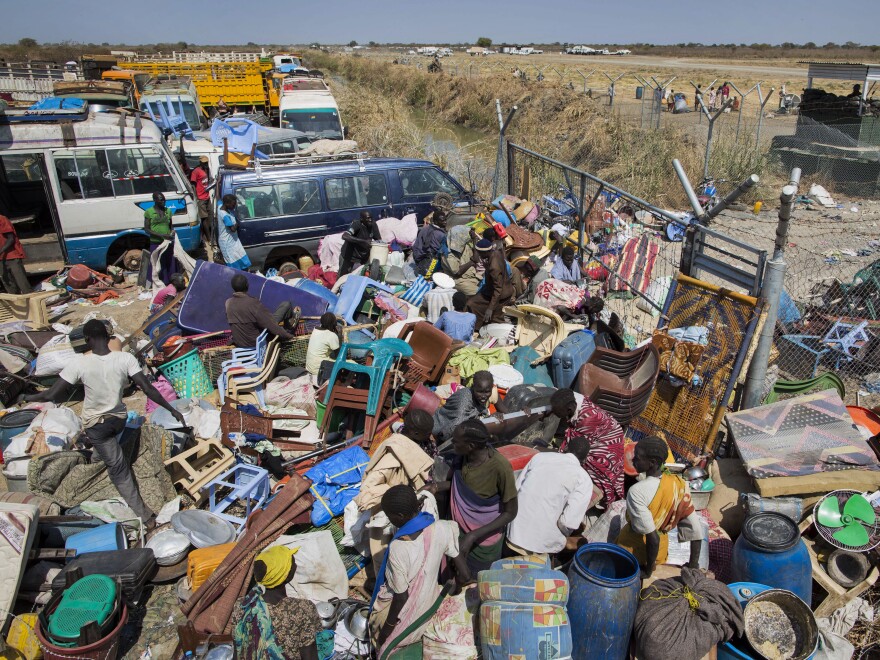At least 200 refugees, mostly women and children, have drowned in South Sudan after a ferry sank as they were trying to cross the Nile River to escape fighting near the northern town of Malakal.
Army spokesman Col. Philip Aguer said the group was in an "overloaded" boat. The New York Times, which places the number of dead at between 200 and 300, reports that it is the worst such ferry accident to date as tens of thousands of residents have sought refuge.
"They all drowned. They were fleeing the fighting that broke out again in Malakal," he added.
The United Nations estimates that more than 350,000 people have been displaced in the conflict between the South Sudanese government and rebel forces.
"Thousands of civilians have been trying to escape the clashes by crossing the river, but many say they simply cannot afford to pay for a boat, says the BBC's Andrew Harding in South Sudan."
"One refugee, Akuch, told our correspondent that she had had to borrow as much as 150 Sudanese pounds (£40; $66) to cross the river."
"Some 9,000 civilians have recently arrived at a UN base in Malakal, almost doubling the number of people seeking shelter there, our correspondent says."
"We all assume that the humanitarian situation will get worse. There are new people displaced," Jose Barahona, country director in South Sudan for Oxfam, tells the Times.
"Due to the uncertainty of military operations, we have been deploying and evacuating people the whole time," said Mr. Barahona. "There are very few places in the country where we can actually go."
Copyright 2021 NPR. To see more, visit https://www.npr.org.





